Earthjustice’s Newly Designed Office Space Reflects Commitment to Environment and Sustainability
Montroy Andersen DeMarco (MADGI) has completed the new 11,000-square foot Northeast regional office of Earthjustice. Serving as interior designer and project manager for Earthjustice, MADGI performed a pre-lease analysis to help the organization choose which space within the 48 Wall Street office tower would best suit its needs and then laid out the space and selected finishes. Helmsley Spear served the landlord, 48 Wall LLC, as the owner’s representative for the fit-out.
Earthjustice is the country’s largest nonprofit environmental law organization. It was founded in 1971 and now has over 100 attorneys throughout the country who take on the most pressing environmental challenges, including climate change, fracking, air pollution, and oil drilling in the Arctic.
“Overall, Earthjustice wanted their new offices to have a great deal of light and feel comfortable. Of course, given their environmental principles, they also had a strong sustainability focus. Both Earthjustice leadership and the project team expended a great deal of effort to review all products for fidelity with the most stringent environmental sustainability standards,” said Steven Andersen, MADGI principal.
The organization’s new Northeast regional office, on the building’s 15th floor, features 25 private offices, three conference rooms, open-plan areas, a reception lobby, break room, and a wellness room. Earthjustice needed a high number of acoustically sound private offices due to the sensitive nature of the team’s work. Therefore, a full 17 of the private offices are on the perimeter of the floor, to take advantage of the windows. The organization also has an administrative office located on the 19th floor of the same building.
In addition to MADGI, JFG Architects served as the architect of record, and WSP USA provided MEP (mechanical, electrical, and plumbing) engineering services.
Environmental Thrust and Upcycling
As this was a landlord build-out, one of the project’s primary challenges was balancing the tenant’s preferences and requirements with the landlord’s budget. MADGI made a point to minimize the use of new materials, instead reusing and upcycling as much as possible. This not only fell in line with Earthjustice’s principles, it was also a smart design decision from a budgetary standpoint. “During pre-leasing, as their project manager, we helped them create a work letter the landlord would agree to. We then developed the standards eventually used to build out the offices,” explained MADGI’s Mariana Panova, the project’s interior designer.
Earthjustice was interested in having a glass entrance to their new space, but this simply was not in the budget. The landlord mentioned that a newly vacant space elsewhere in the building had glass walls that were going to be discarded. MADGI rescued these glass panels and incorporated them into the Earthjustice’s new reception area. “The glass was taller than our planned space, so we designed the reception area to have a higher ceiling than the rest of the floor,” said Elizabeth Zagarello, AIA, MADGI’s project manager. The design team ensured the mechanical and lighting systems would work within the taller space, to deliver the open-glass area they wanted. “By upcycling the glass panels in the reception, we not only delivered on Earthjustice’s vision, we also followed their environmental philosophy and reduced the budget,“ Zagarello continued.
The boardroom features new glass panels in the same style as the panels in the reception. For the boardroom’s laminated glass panel wall, MADGI designed an oversized graphic, as Earthjustice wanted something visually unusual, yet functional, which would provide privacy for meeting participants. The designers created the artwork – a forest outlined and printed in silver ink – as well as the paneling and seaming.
McGrory Glass fabricated the boardroom glass panels, which contain the custom art interlayer encapsulated by etched glass panes. “The interlayer was printed with proprietary chrome pigments at McGrory’s inhouse print division. The large-scale biophilic artwork was precisely aligned during fabrication, creating a seamless transition from panel to panel. The resulting semi-translucent material allows for both privacy and the transmission of natural light,” explained Bridget Lira, Senior Architectural Sales Consultant at McGrory Glass. Additionally, the glass was finished with lightly frosted Solyx film on one side, to both add another level of visual privacy and create a soft glow background for the silver trees when viewed from inside the boardroom.
The team did something similar in the elevator lobby, by reusing the existing stone floor that resembled river rocks. MADGI had the stone cleaned and refinished. To make the floor work with the space, the team picked colors to call out the green and gray tones in the stone. They then specified all-new LED light fixtures and ceilings. Similarly, MADGI used an existing laminate desk, signage, and seating that Earthjustice had used in their previous space.
Sustainable Components with a Colorful Palette
Of course, new materials could not be avoided altogether. Therefore, MADGI ensured that all of the new materials they specified were sustainably produced and would not emit volatile organic compounds (VOCs). The team specified no-VOC paint, for example, namely Benjamin Moore’s Eco Spec WB in a variety of colors. The designers used Earthjustice’s existing furniture – including a multitude of green fabric chairs – and supported it with like greens and browns. However, the design team picked nine accent colors in greens, light beige, light gray, and teal to create a very colorful space overall.
Flooring products throughout the space are sustainable items by J+J Flooring Group. The design team specified luxury vinyl tile (LVT) and Invision carpet tiles. The manufacturer made their carpet and their LVT the same thickness, eliminating the need for transitions; they simply match up to each another. The carpet the designers chose is dark gray in color. It is a handsome, tightly woven item made from recycled content. Although it has a stain treatment, it is a no-VOC product. The team used it throughout the offices, the corridors, and in the conference rooms. The LVT used in the reception area is a medium brown, resembling a light oak wood plank. These tiles were installed in a chevron pattern for visual interest. Meanwhile, a different sustainable LVT was used in the pantry and the service corridor leading to the bathrooms. This particular tile features a silver pattern, which became an accent detail throughout the space, as it complements the custom storefront in the largest conference room.
All-new LED light fixtures were used throughout. At the offices, the look is unusual in that they have an extremely slender profile of 2 1/8 ”, and are incorporated flush with the ceiling tiles.
In addition, the team refreshed the finishes of the floor’s bathrooms, adding accent wall tiles. The designers recommended that they be installed in a chevron pattern with accent grout. MADGI also suggested forest green paint for the women’s room and a blue shade for the men’s room.
Evoking Nature Through Images
The designers used printed art on stretched canvases to hang on the walls throughout the space. Earthjustice wanted the images to depict the environment’s impact on people, rather than simply have nature scenes. The client had several existing images MADGI used in the new space, laying them out in fresh, new ways in the reception area. “We created several design elevations in the project’s design phase to help them plan where best to relocate these pieces,” said Panova. The design team also created new murals, including several for the conference rooms. “We helped Earthjustice pick additional outdoor images relevant to the New York area – the Adirondacks, the Palisades, and so on – to give that feeling of nature and to brighten the spirits of those sitting in the two conference rooms,” Panova added. As Earthjustice wanted their break room to feature pictures of sustainably-grown food, the design team put together a mural for that area that features colorful vegetables laid out on a rustic wooden table.
The Importance of Good Acoustics
Privacy was such a major concern, not only did Earthjustice require a great number of private offices, the entire space had to have optimal acoustics. To achieve this, MADGI specified double-layer sheetrock walls. Also, instead of a traditional office-front system, the team used hollow metal doors with drop seals and frames around the doors, and glass sidelights with frames. The designers wanted better acoustics for the staff so that conversations would not drift, so they mitigated sound wherever possible. For example, they worked to minimize noise associated with the mechanical system. To this end, MADGI worked with the MEP engineer to ensure that all of the ductwork in the space had sound traps. They also avoided running the ductwork between offices. Instead, they were run through the corridors. The team also made sure that the returns were L-shaped so that sound would not migrate from an office into the corridor, or vice versa. In addition, they used Zero International drop seals at all office doors to close the gap at the floor, and ULTIMA 1906 acoustical ceiling tiles and grid from Armstrong, with a high .75 NRC rating and AirGuard Coating Technology.
Montroy Andersen DeMarco
Founded in 1990 and based in New York City, Montroy Andersen DeMarco (MADGI) is a prominent, cutting-edge interior design firm predominantly serving the Greater New York area. MADGI’s affiliate, Montroy DeMarco Architecture LLP (MDA), provides commercial, retail, and multi-family architecture services. Three principals lead MADGI: Steven Andersen; Richard J. DeMarco, AIA; and Daniel Montroy, AIA. The firm employs 35 architects, interior designers, LEED professionals, project managers, and support staff. Building Design & Construction magazine ranks the studio as the 127th largest design firm in the United States. Engineering News-Record lists the firm as the 72nd largest design firm in the New York/New Jersey region.
The studio’s markets include office and corporate interiors; retail, entertainment, residential and mixed-use new buildings (both market-rate and affordable housing); hospitality; commercial building conversions and market re-positioning; landlord services; and sustainable/LEED design. Headed by principals, the specialized studios have served as either lead designer or architect of record for some of the most innovative – and challenging – projects in the city. The firm is known for its design quality and expertise in cost control, technology, and addressing complex zoning regulations.
The firm was the design force behind the headquarters offices of a multitude of global corporate bluebloods and technology firms such as the Japanese advertising and digital marketing giant Dentsu, the Italian coffee brand Lavazza, National Futures Association, TravelClick, Mediabistro, and Mimeo, among others. MADGI’s recent corporate interior work also includes the 150,000-sq.-ft. East Hanover, N.J., U.S. headquarters and laboratories and the 75,000-sq.-ft. Manhattan offices and testing labs of Givaudan Fragrance.
The studio recently served as the architect for two of the most prominent restaurants and tourist attractions in Manhattan: One World Observatory – the 90,000-sq.-ft. observation deck and retail space atop the new World Trade Center, and the renovated landmark Rainbow Room on top of 30 Rockefeller Plaza. The firm’s retail projects include multiple store locations of U.S. Polo Assn., Camper, and Zara; two New York City locations of Bill’s Bar & Burger; the Rogue and Le Coq Rico restaurants in Manhattan; the Discovery TSX retail/entertainment space in Times Square; and showrooms of Jordache and Pem America.
MDA’s architectural, executive design, and design collaborations portfolio includes the 230-room citizenM New York hotel in Times Square; the 183,000-sq.-ft., 17-story 20 East End Avenue luxury condominium; The Dillon Townhouses and Condominiums, a 205,000-sq.-ft residential complex at 425 West 53rd Street that received an AIA New York State Award of Merit; the 11-story 560 West 24th Street luxury condominium; the 82,000-sq.-ft. Soori Highline luxury condominium on West 29th Street; and the market repositioning of the 100,000-sq.-ft. 160 Fifth Avenue office tower in Manhattan.
Source: Office Insight/ Photo by Peter Dressel/Wilk Marketing Communications
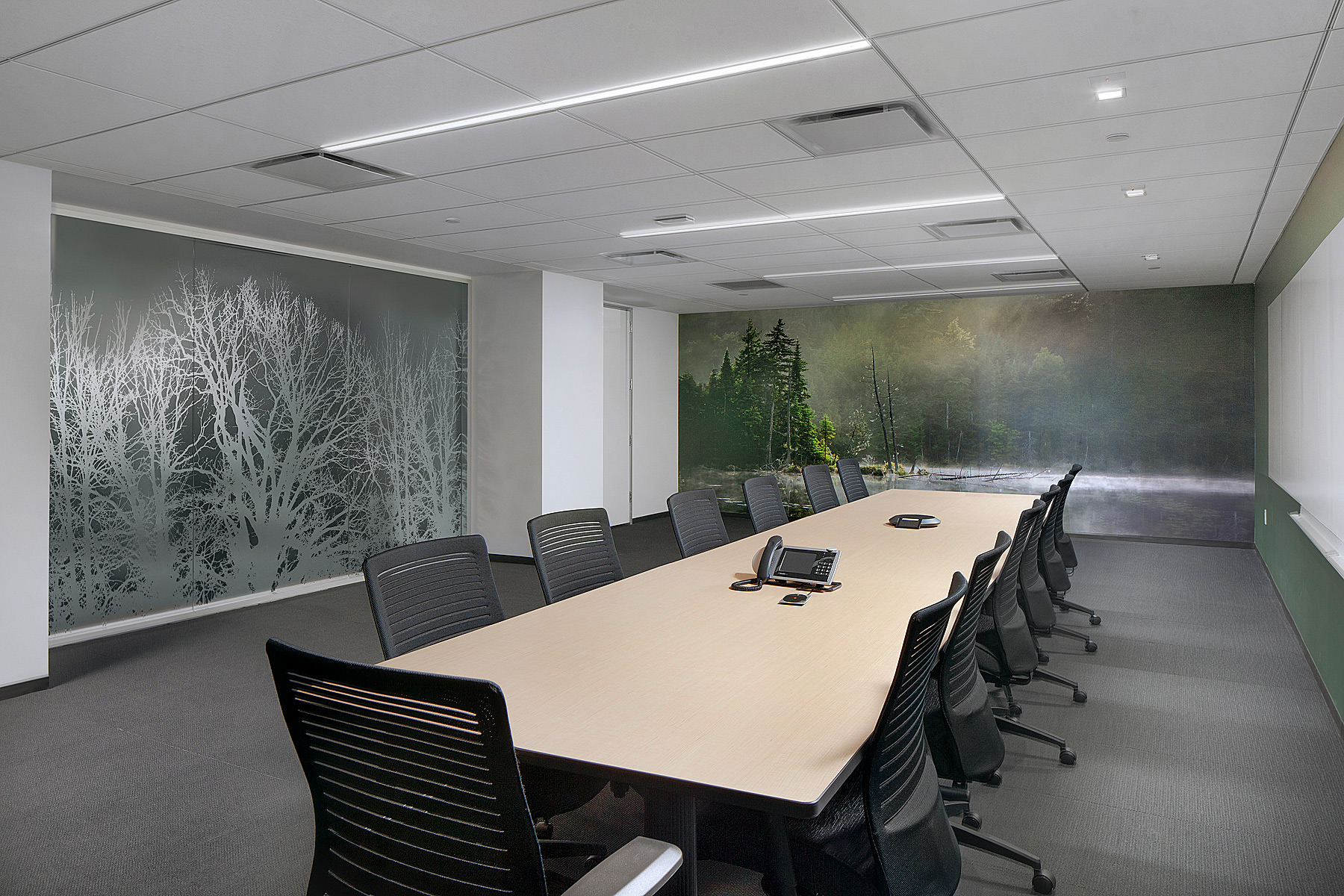
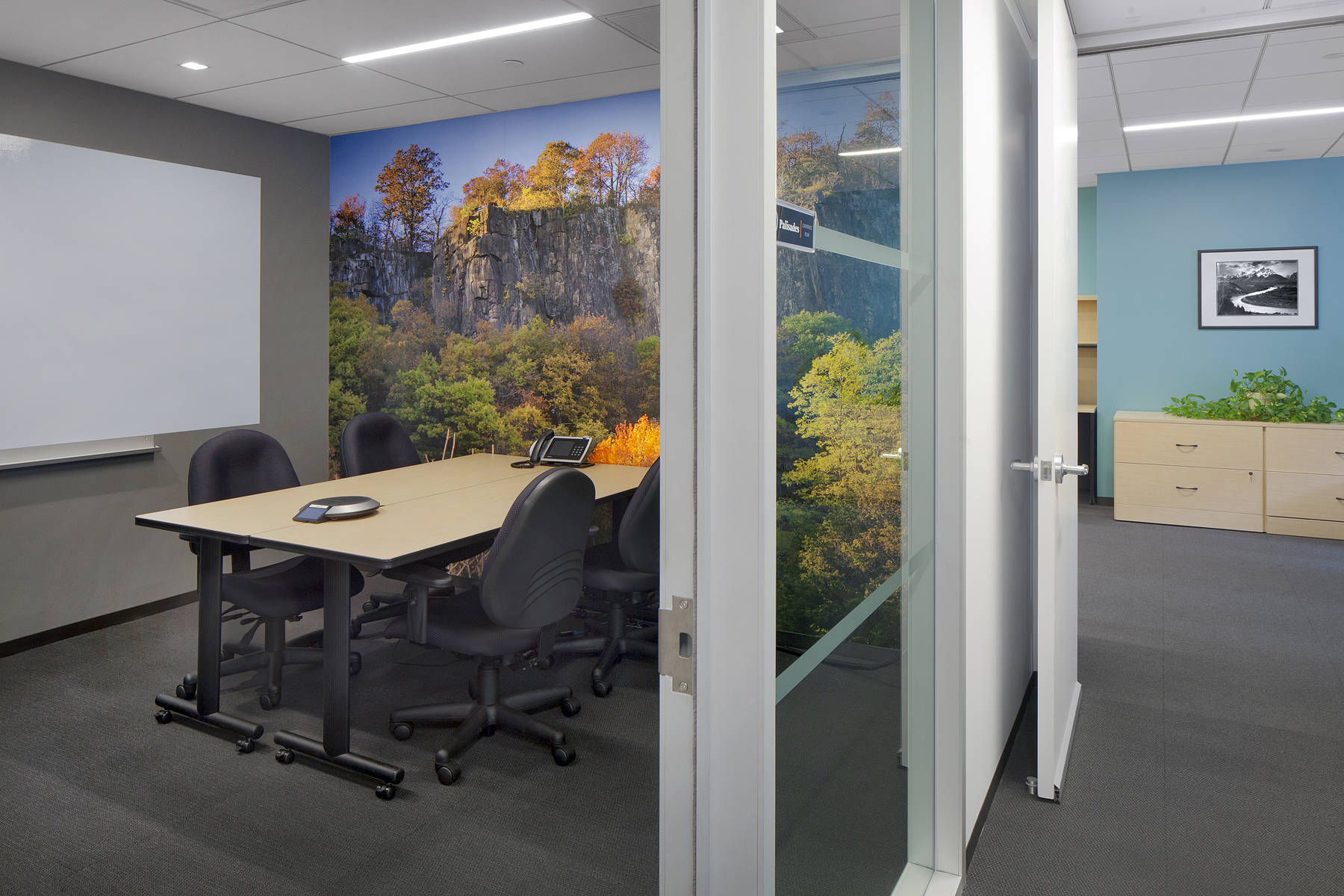
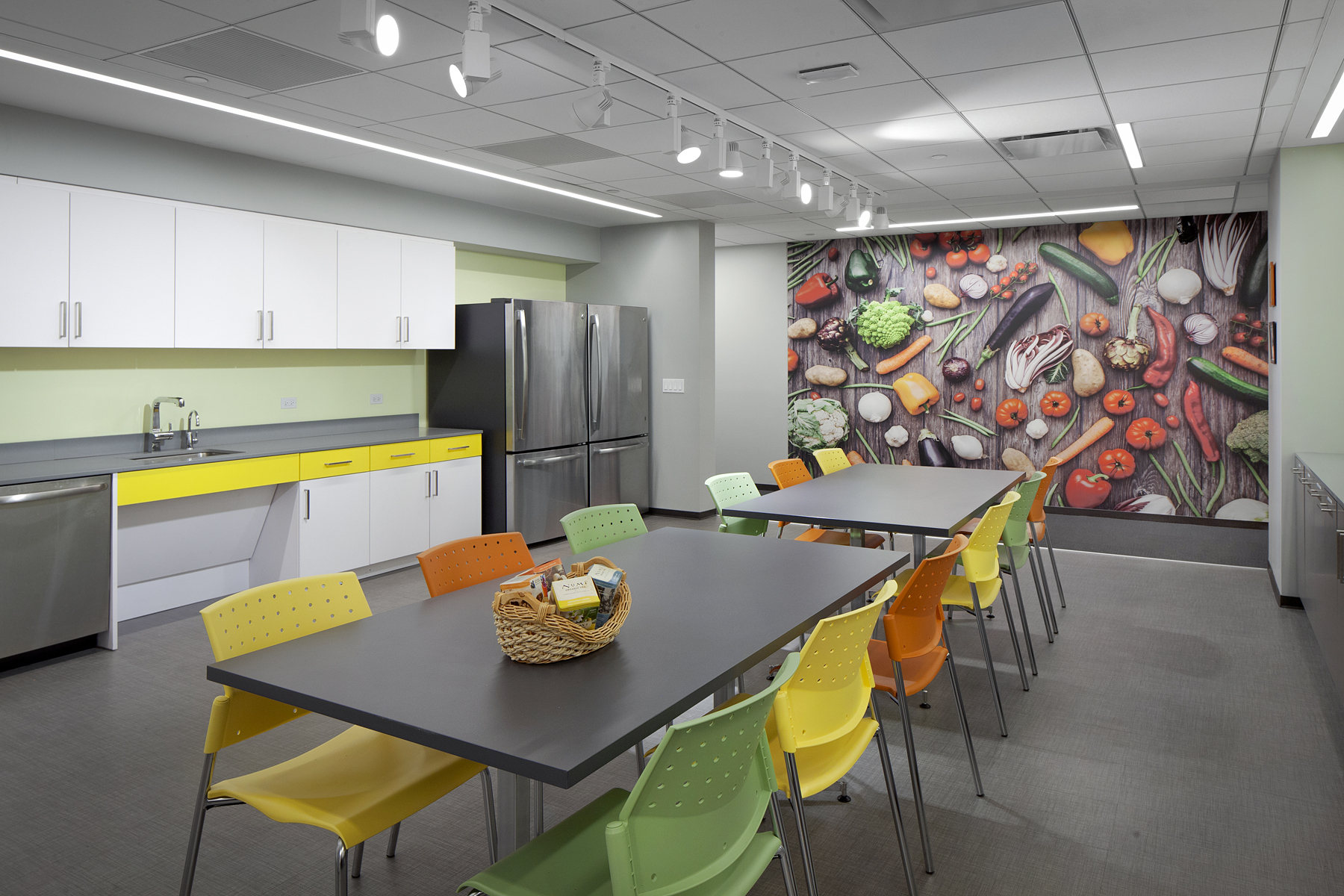
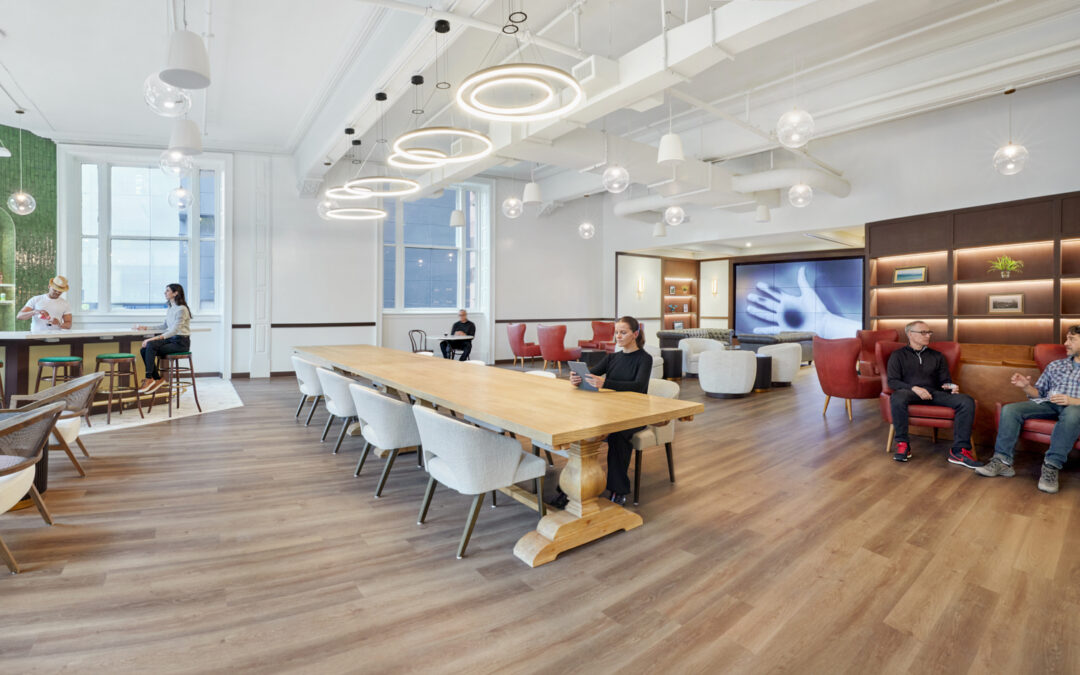
MDA is One of the Nation’s Largest Workplace Interior Architecture Firms
Montroy DeMarco Architecture LLP is one of the Nation's Largest Workplace Interior and Interior Fitout Architecture and Architecture Engineering (AE) Firms! Check out Building Design+Construction Magazine's Annual 2024 Giants 400 Report....
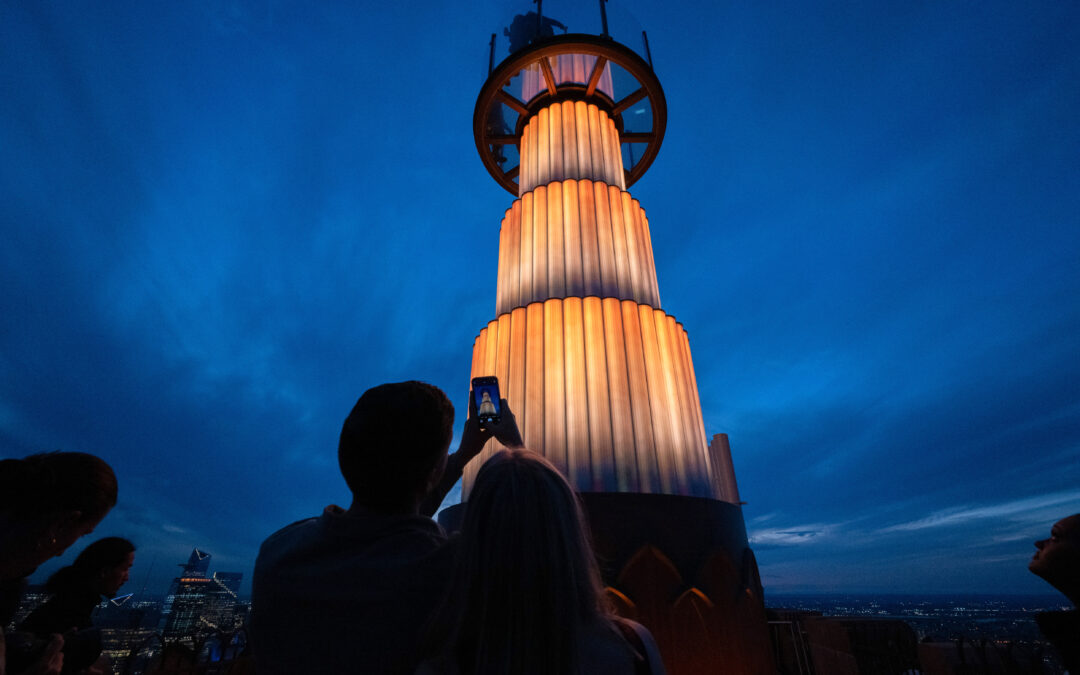
Top of the Rock Opens 900 Ft. High Skylift Attraction
Skylift at Top of the Rock, a new attraction atop 30 Rock, elevates visitors nearly 900 feet in the air above street level for a spectacular, entirely unobstructed, 360-degree view of New York City. The design team for the Skylift included owner Tishman Speyer...
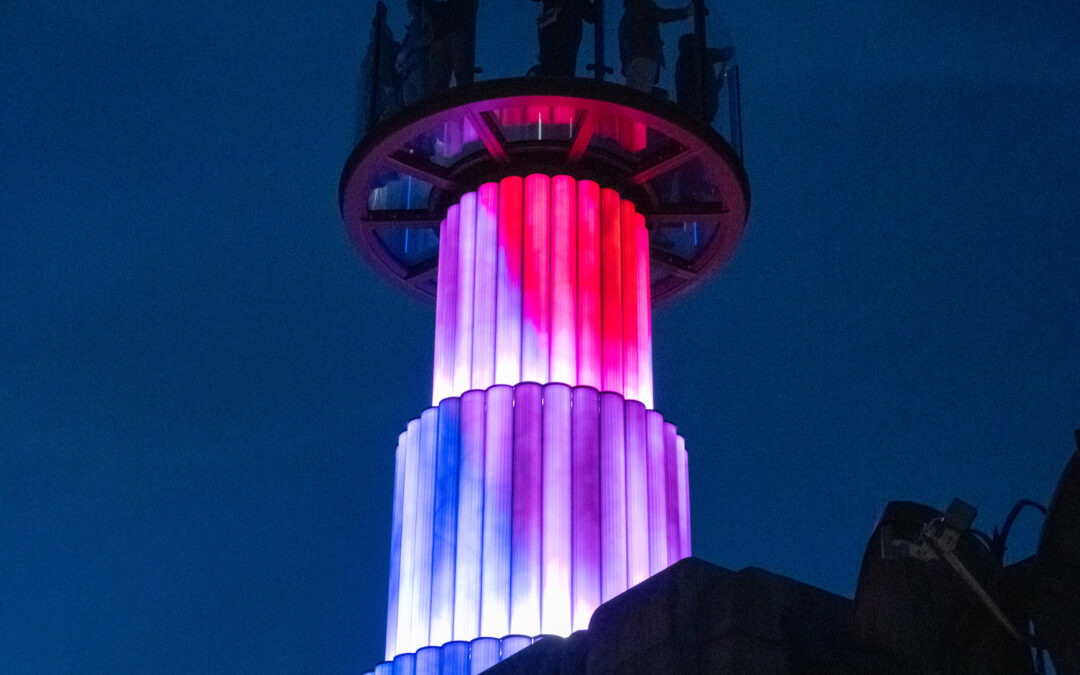
Tishman Speyer Properties and Architect Richard J. DeMarco Complete Skylift At Rockefeller Center’s Top Of The Rock
The One-of-a-Kind Attraction Elevates Visitors Nearly 900 Feet Above New York City New York, NY–Skylift at Top of the Rock, a new attraction atop 30 Rock, elevates visitors nearly 900 feet in the air above street level for a spectacular, entirely unobstructed,...
